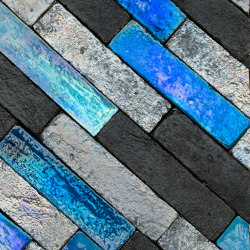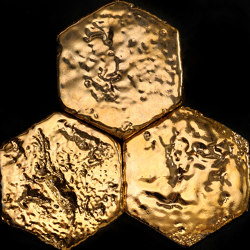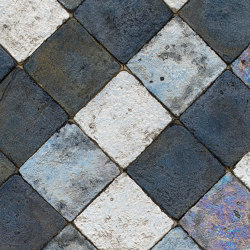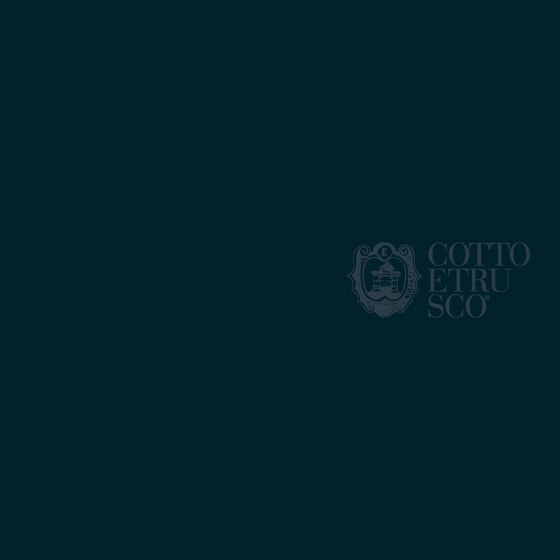Ancient Lustre Rubboli 1873 | Petrolio
Ceramic tiles from Cotto Etrusco
Product description
Concept
The history of the lustre technique - the application of gold and ruby iridescent layers during a third firing using broom as fuel - is one of the most mysterious and fascinating in the ceramic tradition. It seemingly originated in Mesopotamia, during the 9th century. After the Islamic invasion it spread throughout North Africa to Spain. It finally reached Italy, where some of the most important Renaissance artists, including the celebrated Mastrogiorgio from Gubbio, created incredible masterpieces. In the 17th century this technique slowly disappeared. It was Paolo Rubboli in Gualdo Tadino who rediscovered the lustre technique, using the information that in 1558 Cipriano Piccolpasso had collected in his book The Three Books of Potter’s Art. Nowadays, Maurizio Tittarelli Rubboli, Paolo Rubboli’s great-grandson, continues the family tradition and has created this fine collection of lustre tiles specifically for our company, combining the traditional with the contemporary.
More about this product
Categorised in Ceramic - Wall coverings - Ceramic tiles - Wall tiles - Colour multicoloured - Earthenware (non vitreous).
Manufacturer
Cotto Etrusco
Family
Ancient Lustre Rubboli 1873
Architonic ID
20013287
More products from Ancient Lustre Rubboli 1873 family
Downloads
Manufacturer’s Catalogues
Contact information
Address
Zona Industriale Santa Maria di Sette, 06014 Montone Italy
Get more information
Sign in to your Architonic account to have your contact details filled out automatically for each request.
Where to buy this product

More from
Cotto EtruscoContact information
Address
Zona Industriale Santa Maria di Sette, 06014 Montone Italy
Where to buy this product



